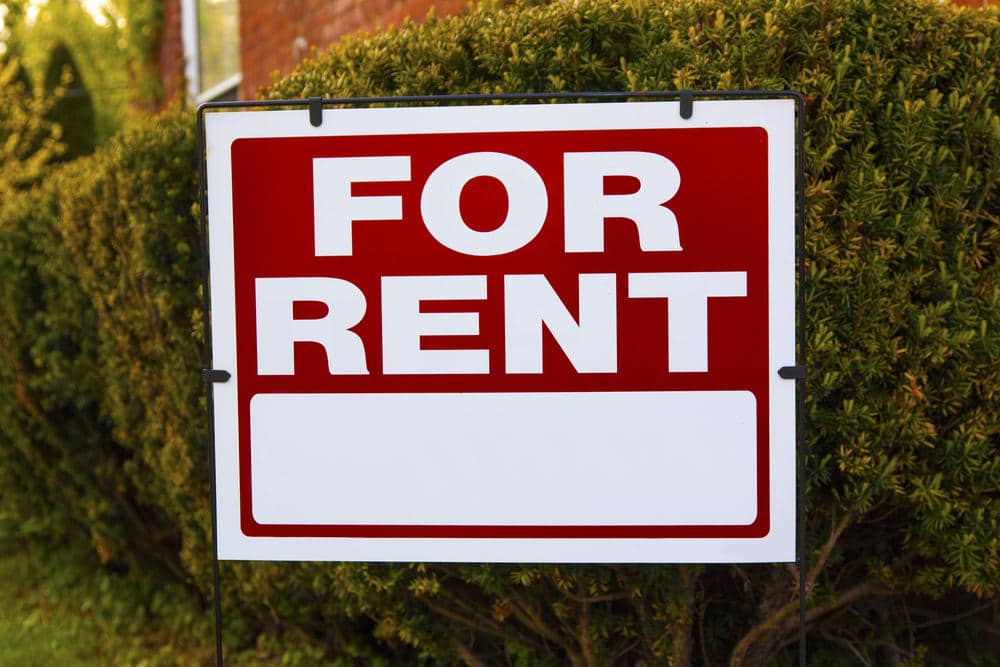
Lower Your Rent With the Power of Negotiation
While it might seem like rents are sky high and never coming down, real estate experts have been saying that housing markets are beginning to soften. If you moved into your current digs during the peak of the rental market, you’re probably paying more than most of the landlord’s other tenants and thus might stand a decent chance to lower your rent.

Keeping you as a tenant saves the landlord from having to find a replacement — something that becomes more epensive the longer it takes to find a new occupant.
The more you can prove that it’s a win-win for the landlord to keep you around, the better. Here’s how to build your case.
Gather Intel
The more thoroughly you research the rental market, the better informed you’ll be about whether you can make a good argument for a rent reduction.
The worst case scenario of doing this work first is finding out you actually pay less than the market rate and thus won’t stand a chance being able to negotiate something lower.
So, before you do anything else, look up the rental vacancy rate where you live. You can find these figures on the U.S. Census website, which posts quarterly updates on municipal, state, and national trends.
Longer Vacancies
Your argument gets stronger with more data that showing vacancies are going up in the two most recent quarters — be sure to write these statistics down so you can quote them to your landlord.
As of this writing, vacancy rates have increased over the past year in every part of the U.S. except for the northeast.
Tenants Groups
If that’s where you’re trying to negotiate cheaper rent, get in touch with local tenants rights organizations for more neighborhood-specific information.
These groups might also have even more recent data than the U.S. Census has. Additionally they might know what kinds of arguments have helped others in the area negotiate better rents.
Know Your Neighbors
Once you’ve got plenty of intelligence about broader real estate trends, take your research down to more of a micro level. Chat up your neighbors to find out how much they’re paying in rent.
If you’re in an apartment building or housing complex of any kind, the tenants with floorplans that most closely resemble yours are going to yield the most relevant information.
In addition to comparing notes on how much you pay in rent, find out whether your neightbors have noticed any changes in the amount of time vacant units in your neighborhood have stayed on the market.
Ask a Realtor
Better yet, ask a realtor or rental agent — if you don’t know any personally, try to find an open house in your neighborhood and strike up a conversation with whoever’s showing the place.
See whether that person will tell you how many people are applying for vacancies now compared to previously. Of course, anyone showing a vacant unit will try to make it sound like the property just opened up, so you may need to be creative — you could even let him or her know you’re gathering data to present to your landlord so you might find out more.
Don’t Be Too Ambitious
Hopefully your research will guide you toward a realistic goal: ask for a rent that’s similar to what others are paying for comparable properties.
If you think your landlord is going to haggle you back up, you could start with a lower price than what you actually want in the hope that the end result will be somewhere in the middle.
Longer Lease
A nice way to negotiate realistically would include offering to renew the lease for a longer preiod of time. Another angle on this: offer to prepay up to six months of rent in advance.
Or you could request a temporary rent reduction and clarify that your rate could return to the present after a certain amount of time. Finally, any combination of these tactics might work even better.
Document Your Good Tenancy
Write down a list of things that makes you a good tenant. Hopefully this incudes always paying on time and keeping your place in mint condition.
And if there’s anything you might be able to get in writing from your fellow tenants about what a good neighbor you are, that can strengthen your case.
Bonus points if you can truthfully point out to the landlord that you’ve referred new tenants to the building or made demonstrable contributions to the community.
Start Now
If you haven’t done any of the latter things yet, you can always offer to start doing them now — especially taking on maintenance tasks or even gardening.
While you’re at it, if you can identify any repairs your home or common space currently needs, you could offer to make those repairs or replacements in exchange for cheaper rent.
If your rent includes utilities, you could offer to upgrade an appliance for a more energy efficient model and ask for the savings in electric bills to be passed on to you.
Prepare to Charm
Don’t try to ask for a rent reduction via email or over the phone — schedule an appointment to go see the landlord in person so you can put on the charm.
If your lease becomes month-to-month after the first year, then you can broach the topic of lower rent anytime after that first year.
Otherwise, try to schedule your talk for around a month before your lease is up for renewal; doing it midway through the year might make the landlord think you intend to break the lease.
Be Diplomatic
When you meet with the landlord, be as friendly and polite as possible. Don’t make any demands or threats. Try to ask the landlord as many questions as possible so that you might make your request appeal to his or her needs.
Be sure to qualify that you don’t want to move but instead want to stay and that doing so would save the landlord from the hassle of having to: advertise a vacancy, hold an open house, screen applicants and potentially lose rental income between tenants.
Or ask for advice and see whether the topic of reduction come ups. For instance you could say, “I love living here and don’t want to leave, but I’m seeing cheaper rents elsewhere. What should I do?”
Other Ways To Lower Your Rent
If even your best effort at negotiating doesn’t succeed, it doesn’t mean you’re stuck forever paying high rent. Since prices are beginning to come down in many cities, you should be able to find good openings elsewhere.
And even if rents haven’t gone down as much as you would like, you can still save money by downsizing to something smaller than where you live now — especially if you also sell items that might be too big for a smaller place.
Readers, how are you feeling about what you pay for your living space — are you hoping you can negotiate something lower priced too?


